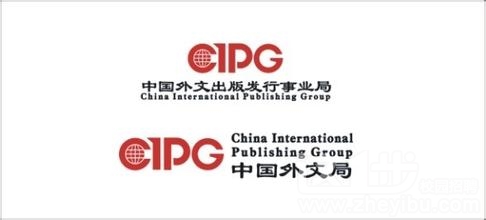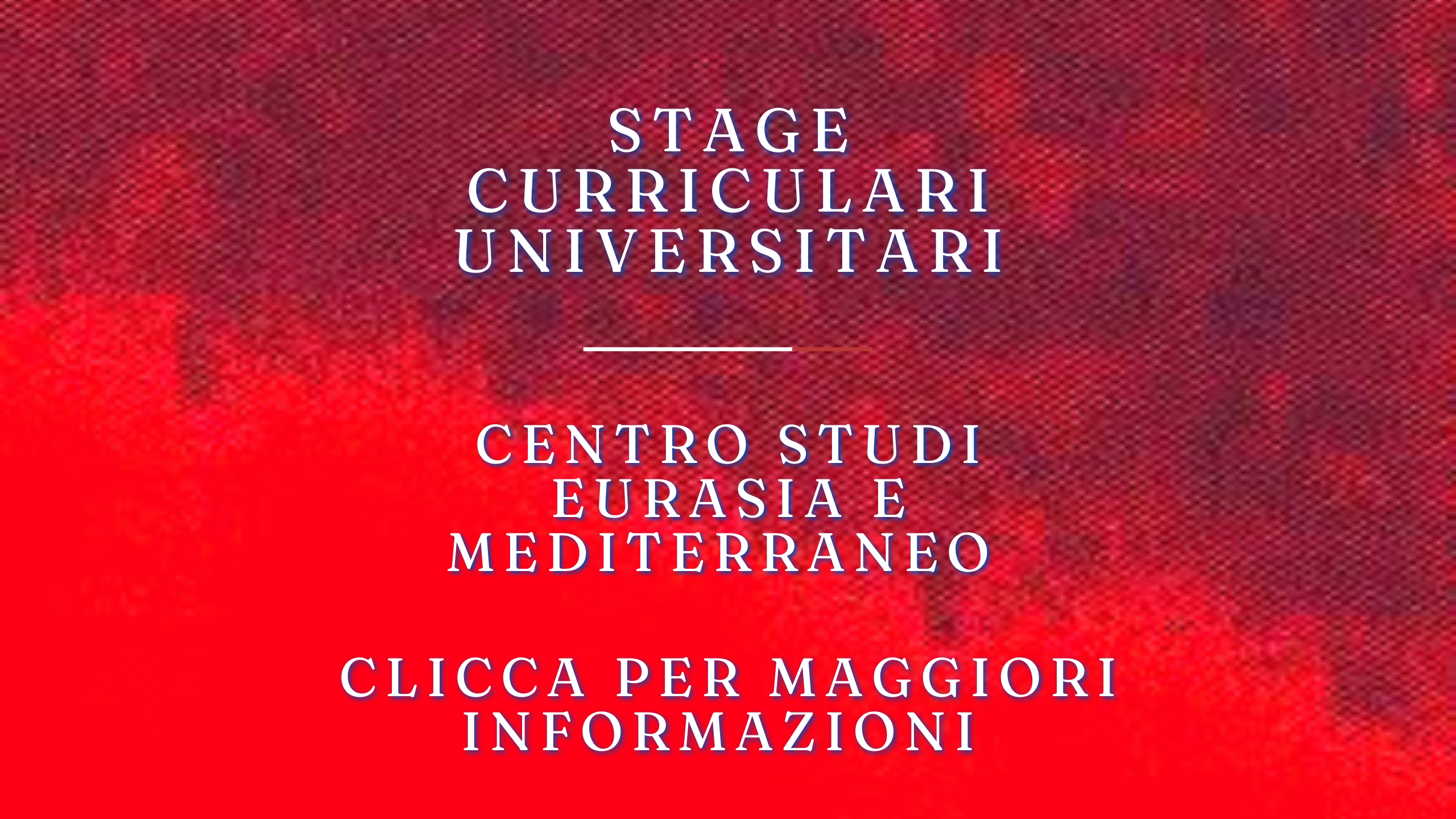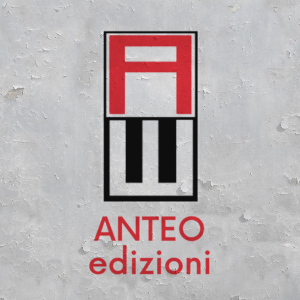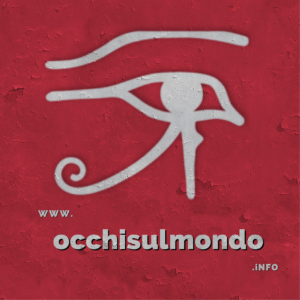Vivere in Cina
Per gentile concessione dell’autore pubblichiamo una serie di articoli che illustrano alcune importanti caratteristiche dell’odierna società cinese, dove tradizione e modernità convivono in maniera originale.
IN THE TIME MACHINE THROUGH SHANXI
Belov Maksim *
Shanxi(山西) has a millennial history. Many historical monuments of material and spiritual culture and history of the Chinese people are preserved here.
The first and most vivid impression which remained in my memory of the trip is feeling as if I’ve have been in the medieval era with its life, tradition and culture, and a developed infrastructure of this province, making the stay in the world of ancient China easier and more comfortable. It looked like what you would see if you rode through ancient Chinese cities in a time machine called “Tourist Bus Through Shanxi”.
The first stop was Taiyuan city, which is 2500 years old. Taiyuan as the whole province is famous for its cuisine, with noodles being especially popular.
In one of the local restaurants guests were treated to a local meal. The restaurant was filled with songs and dances, showcasing local art and culture. But most foreigners were struck by the local chief’s spectacle of making noodles. At the beginning the chief showed how to cook “daoxiaomian” noodles (刀削面), then “longxulamian” (龙须拉面). Due to the unique elasticity of the dough, it’s easily planed and stretched, almost like bubblegum or inflated balloons. The secrets of making such a dough are passed from generation to generation for thousands of years.
On the second day of the trip guests arrived at Qiao’s Grand Courtyard in Qi country (乔家大院). The yard is a large architectural ensemble, showcasing the original style of a typical home during the reign of the Qing dynasty (1735-1795) in North China.
The next stop of that day was in Pingyao Ancient City, the only medieval city of China, which has fully retained its historical architectural appearance.
Inside Pingyao there is the ancient seat of government (1346), the first Bank of China “日升昌”(1824), several historical monuments and about 4 thousand courtyards (四合院). Most of them are more than 6 centuries old. Now, hotels and restaurants are located in these courtyards.
The foreigners spent the night in one of these hotels. The impressions were indescribable. The spirit of history reigned everywhere, starting from the front door to the furniture and shower room. It seems that modern technologies didn’t distort or violate the atmosphere. They only brought comfort and harmony, made the room cozier, and gave the opportunity for modern humans to simultaneously be in the past and stay in touch with the modern era thanks to Internet and electricity.
They then visited Wang’s Grand Courtyard in Lingshi country. It keeps a history of the life of the Wang family. All buildings of this place saturate with symbolism. If viewed from above, one could see that the streets separating the small courtyards of this vast territory, portray the character王, the generic character of the Wang family; the number of steps to the second floor is exactly 13, saying that only girls who are over 13 years old could live on the second floor; on all the grating of the windows in the upper left corner you can see a simulated image of the character “寿” (longevity); decorations of stone peaches on the doorsteps symbolize long life and prosperity (on the birthday of those who were 60 years old family cooked a peach pie) and so on.
The ancient fortress Zhangbi(张壁古堡), built 1600 years ago, is located about 40 km from Pingyao. Underground tunnels along the entire Zhangbi territory have several layers. The deepest layer is at a depth of 20 m. They serviced as defensive structures and shelters during the Japanese occupation.
Mianshan Mountain (绵山) reaches 2566 meters above the sea level. It is associated with the history of the origin of the traditional Chinese holiday Qingming Festival (清明节), the origins of which date back to an even more ancient holiday known as Cold Food Festival (寒食节)
Several Taosist temples are situated on the top of the Mianshan Mountain. Close to them is Villa Garden Hotel Yunfeng, a large high-rise building which is built almost directly on a steep mountain slope. The views from the window of the hotel give a sense of detachment from reality and the mundane, allowing you to take in the distant past and the origins of the birth of Taosim.
On the last day the “time machine” took foreigners back to the present. They visited cave dwelling of Qikou village (碛口) and Shanxi Lv-Liangshan Cang Er Hui Relax Resort where they enjoyed the magnificent scenery of the forest and lakes surrounding Shanxi Lv-Liangshan International Golf Club’s courses.
How to enter Chinese University?
For the past 30 years, China has made sudden progress in economic, industrial, and other fields. China’s cooperation with both developed and undeveloped countries is increasing. This causes the demands of a great number of sinologists to acquire higher education in China or to network with China’s education specialists in all of these countries
The developing dynamics of the science and education system in China plays a significant role in the increased demand of the knowledge of the Chinese language and professional education. The quality of education in China has already risen to international standards. High schools in this country have begun to take leading positions in the world ranking. For instance, according to U.S. New and World Reports 2015, of the best universities world wide, the Tsinghua University has been named the best educational organization in the field of engineering research
The quantity of Russian speakers desiring to go to China is increasing year to year. What questions could students have for the entry process, and what problems might students encounter during their time studying in China? How do students from
the former Soviet Union live? Also, how is the student life in China? We’ll tell you in our little stories.
Choice of an university in China.
People in China consider education with big respect and even fatalism. They believe that one exam day could change a person’s entire life. The work each university in China is being inspected by the whole society. All schools put their best effort to improve their education level and teaching quality, tirelessly yearning to take a leading position in the national ranking. Due to that, the university image,as a rule, completely corresponds to its quality of teaching in China.
Currently, Peking University holds the first position in the top ten universities in China. The rest is fine Zhejiang University, Tsinghua University, Shanghai Jiao Tong University, Fudan University, Shandong University, Wuhan University, Jilin University, Sun Yat-sen University and Nanjing University take a correspondent place in the national ranking.
All universities offer huge lists of specializations, from Philology and religious studies, to business administration (MBA) and information technology. According to common opinion, some schools have better resources for humanities, and some for engineering science. However, to receive the diploma of the university like北大“Beida” (Peking University by Chinese) or 清华“Qinghua” (Tsinghua University), nobody will have a doubt about the quality of education received at these schools.
Registration and documents submission’s time
If you’ve chosen the “Qinghua” or another University, you need to register on university website and apply for admission online in early March. All the necessary documents in paper format would to be carried or sent to the university by mail.
In the middle of April, those whose documents fully comply with the admission requirements of the school will be admitted to the next stage of the selection. Then, they need get an exam book and at the end of April appear for an entrance exam or interview, depending on the requirements of the university. Those who successfully pass the exam or interview will need to announce their arrival to study at the university at the end of August – the beginning of September before the starting of the new academic year.
The registration for admission to “Beida” starts at the beginning of each year and lasts until March. In the middle of March, upon successful registration, you can apply documents in paper format and continue as in other schools.
There are the academic programs in which subjects are fully conducted in English. The entrance requirements of these programs for language knowledge accordingly will be different. These programs either include Chinese lessons, but with not such strict requirements compare with programs in which subjects are full conducted in Chinese. The registration and documents submission’s time of English programs might be different from the Chinese program. For instance, in Qinghua the online registration time to Master in English is from November until February.
Requirements.
The first and basic requirement for foreigners to enter Chinese University is the Chinese Proficiency Test (HSK). In comparison with others schools’ demands of
proficiency in Chinese, to enter Beida for international entrants are more severe. It’s easy to explain by its high position in the national ranking. That’s why if an entrant lacks a few points at the exam or his HSK score is a little below Beida’s requirements, it will be sure that the entrant will be accepted to any other school with the same score without any questions. So, if you use admission requirements of the Beida as a standard of entering schools’ demands it will be helpful in learning Chinese and be a guarantee that you will be accepted not only to Beida but any other school.
To understand the difference between entrance requirement of Beida and any other school, we’ll introduce you the Beida’s and Qinghua’s entrance requirements for foreigners. For admission to earn a Bachelor’s degree in Beida, an entrant should have the HSK 6th; to learn master or doctorate at faculties of natural Sciences or technical professions an entrant’s point of the HSK 6th should be not below 200, at faculties of Humanities and social sciences not below 210.
In Qinghua requirements for HSK are more “gentle”. To be accepted, to learn bachelor an entrant should have 60 points of each section of HSK 5th (listening, reading, composition, grammar test). To learn master and doctorate at faculties of natural science or technical professions a point of the HSK 4th should be not below 195, at Humanities and social sciences a point of the HSK 5th should be not below 180.
Approximate list of documents required for admission:
- Fill out on a computer, and after successful registration, print application with your photo included.
- The original or notarized copy of a certificate of secondary or higher education, translated into Chinese or English.
- For master and doctorate programs additionally required the essay (research plan), 800 characters for master and 1500 characters for doctorate programs. Examples of that you can find at the website of the university.
- Two recommendation letters from your teachers.
- A copy of the passport.
- The HSK certificate.
Don’t forget about age restriction (for bachelor and master the age varies from 18 to 25 years old, for doctorate is until 40 years old).
Tuition fee.
The program and specialization fee of high education in China ranges from 10 to 50 thousand Chinese Yuan per year (exchange rate USD to CNY 1=6.49). Also you should be ready to pay the enter school’s registration fee 600-800 CNY, medical commission fee 450 CNY, and then visa services fee 400 CNY.
Every school provides a dormitory with a washing machine and kitchen. There is a toilet and shower, air conditioner and internet in every room. For those who love to live off campus, realtors will help you find an apartment, to execute the relevant documents, sign the rental contract.
Scholarship.
China gives to get free education to every international student in every national university. Scholarship might include tuition and dormitory fee. Many and different
grands are provided: Chinese Government Scholarships, Confucius Institute Scholarship, Chinese Local Government Scholarship, University Scholarship and so on. Application time begin from November and last until April. Application for scholarship time may be different. You could make a request about Scholarship in Chinese embassy in your country or visit website of China Scholarship Council (CSC) (http://www.csc.edu.cn).
Morning market in China
Life in China’s big cities is significantly more expensive than in provincial towns. In this regard, China is not very different from other countries. There is a “capital” food price, and already high prices, including rent in Beijing, continue to grow annually. Of course, those who have been in the country but didn’t have time to understand everything deeply, think in this way. However, the main part of the population of China whose income is not very high always know where and what can be bought for a cheaper price. With all the problems in China, there are always a lot of options, especially with grocery shopping.
Chinese people rise very early, and, accordingly, go to bed very early. So, only deep knowledge of the habits of local residents could help to see the life “hidden” from foreigners. If one gets up early, around 6:00 a.m. and goes outside, one can be surprised to see an interminable morning life in every residential district of Beijing. Wipers have already finished cleaning. The owners of small restaurants and cafes open the doors and entice visitors by aromas of freshly cooked meals. Most of passers-by rush to the morning market for the products. It opens at 6 a.m. and closes at noon.
Residents of China come here almost every morning. It’s also associated with Chinese culture and traditions. This is because the real national cuisine usually should have fresh produce. The meal, which is left from the previous table, isn’t stored in the fridge for a long time, therefore do not cook more than need. It’s much tastier and healthier to eat a meal that is fresh and with variety, particularly vegetables combined with meat, fish and fruit.
In almost every metropolitan district of Beijing there is a small market where you can buy fresh fruits, vegetables, meat, fish, nuts, chestnuts, sunflower seeds, pumpkin seeds, mushrooms etc. Every morning farmers from neighboring villages bring their products here. Among them are either those who come from afar, for instance, with walnuts, sweet pears and spices that are brought from the Autonomous region Xijiang or Yunnan province. In these markets there is always a huge selection of apples, eggplants of all kinds and varieties, cabbage is also of very different kinds and colors, pepper even has a separate whole section. There is big variety of all kinds of mushrooms, known to the Europeans probably as champignon. An incredibly large assortment of eggs – chicken’s, goose’s, duck’s, quail’s and “songhuadan”(duck’s preserved in lime) and so on. There are a lot of chestnuts of big and small form.
In China, similarly with other Asian countries, people use chestnuts for cooking different dishes and eat this kind of nuts in big quantities. Fish, shrimp, crabs and other river and sea products are sold alive (all of them swimming in special large
separated aquariums and after a buyer points which he likes it will be caught by a net and given to him) or in frozen form. It’s more customary to eat freshly caught fish, which is why frozen is much cheaper.
One more interesting thing is that it is not customary to haggle on morning markets. Of course, if a buyer purchases anything in quantity of few “jin” (1 jin = 0.5 kg), a seller could do a discount. Frequently for good measure or weight a seller could add to your purchase anything of fruits for free.
Since green and floral tea (Jasmine, Chrysanthemum) can be stored no more than a year, and drink these sorts of tea mostly in the spring and summer seasons customers might buy loose leave tea in such market not only have been already packed in boxes of a certain size and weight but might pour tea as much as needed and then it will be packed. In winter it is better and healthier to drink Pu-erh tea, which can be stored very long. In this sense, Pu-erh tea is often compared with wine, as with age it has better taste and therefore costs more.
People either could buy all sorts of household goods in that market. The price of each thing, from mops to pots and buckets, are sold for 10 CHY (exchange rate USD to CNY 1=6.49). Senior citizens and housewives like to go to that market. Many of them go there for shopping with bags on wheels. Often the elderly are brought to the market by their children in luxury cars. Apparently, rich people in China are also not averse to saving by shopping in the morning market. May be that’s why many people in China live in prosperity. Procured all necessary early in the morning, all customers rush home to cook a fresh breakfast, and later, lunch.
Teach fishing
According to the plan of the development of the country, by 2020 China must to end poverty. In 1985, subsistence level of the rural population, defined by the State statistical office, was annual income per capita below 150 CNY (exchange rate USD to CNY 1=6.49). The poverty line has been constantly raised: 200 CNY (1986), 1000 CNY (2008). From 2011 minimum income of rural residents was equal to 2300 CNY.
Support of economically underdeveloped districts and poor families is the main objective of the Chinese government. It largely refers to social sphere, and at the same time involves stimulating economic development, increasing industrial production in the underprivileged areas, improving conditions in schools and universities, and raising the quality of education.
Should be noted, there are strongly built relationships between medium schools. Professional colleges and institutes of the developed and poor areas provide assistance in the education and train of highly qualified personnel in China. The government makes elementary, secondary and high school education available for everyone, including representatives of low-income families.
A system of subsidizing students from low-income families successfully operates in China. Some professional colleges and institutes annually accept entrants on a budgetary basis for free. However, now not everyone in need has the opportunity
to earn free high education with the provision of a dormitory or even a small scholarship.
When a student presents a relevant application and a confirmation of a modest family budget, the grant could be provided. Those who do not score the required points to receive a grant can apply for a student loan.
It should be noted that earlier, due to low profit and frequent violations of repayment terms by the borrowers, banks in China give these credits very reluctantly. The situation has begun to improve. The information about violators is entered into the people’s Bank of China system to confirm the reliability and solvency of natural persons. The information about students with “tarnished” credit reputation could be found in all the financial institutions of China. Further, it will serve as a reason to refuse registration of credits for purchases of houses, cars and even small loans.
Universities in China are trying to provide low-income students with jobs in their libraries, laboratories and even schools’ administrations. Despite a very low salary, students seeking work are a lot more abundant.
The country does what it can so that students do not live from paycheck to paycheck. You can see moderately well-fed students more often. Students are very well fed in universities’ canteens. In the canteens’ menus there is a variety of dishes with recipes from different provinces. There are also options for Muslim students. A special menu is prepared for them, where all the dishes are made without pork.
Due to government subsidies, meals in the canteens are very cheap. Five yuan (CNY) can get you a satisfying meal, and 10-15 yuan is just a “blow out”. The government strictly performs its fiduciary responsibility towards the younger generation.
Experts say that after creating a system of student subsidies, currently it is necessary to engage in its improvement. It is very difficult to gain the necessary points to receive the grant for the guys from poor areas with a weaker academic base. At the same time, cases of deception frequently occur, when students hide the real information about their well being to receive a grant or when a student’s credit is misused. All this confirms the need of clear and strict control in this area. Besides, very often low-income students hesitate to apply for maintenance grant because they are embarrassed and don’t want to mention their problems. To resolve this situation it is necessary to create centers of psychological support in high in educational institutions.
In ancient China, people said, “Give a man a fish, and he eats for a day. Teach a man to fish and he eats for life”. Loans for students support is one of the most important methods of financial assistance. To give young people a profession, teaching them to work and provide for themselves and not relying on their parents and the state is a basic way to eradicate poverty.
Maksim Belov is editor and correspondent russian from Beijing of CHINA INTERNATIONAL PUBLISHING GROUP














Il CeSE-M sui social